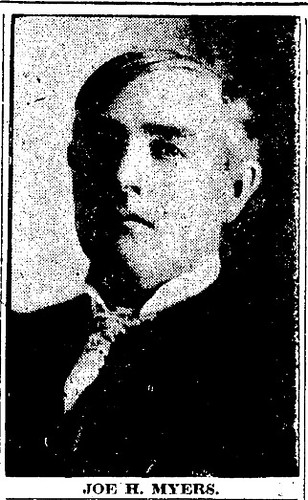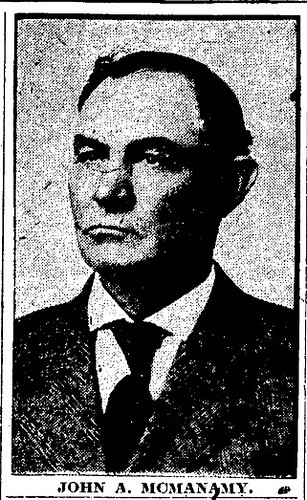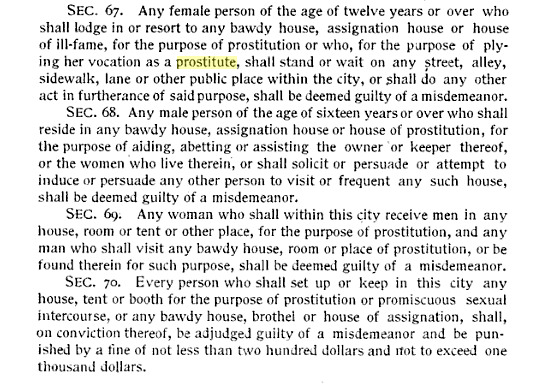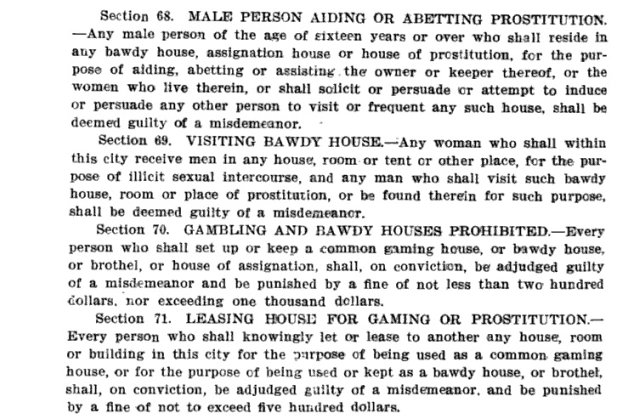During the height of World War One, a covert raid was launched by the Joplin Police Department on behalf of the federal government. Chief of Police Joseph H. Myers, Assistant Chief of Police Charles McManamy, Chief of Detectives William F. Gibson, and an assortment of “street sergeants” met under the cover of night at the police station. Few, if any, of their colleagues knew about the raid. Chief Myers was concerned some of his men might tip off the intended targets.
At eleven o’clock at night, the men set out in squads. Their orders: to raid all rooming houses on Main Street and arrest all female occupants. In a complete surprise, the chief and his men successfully carried off the raid. One hundred and forty two women were taken into custody and taken to the Joplin Police Department. Once there, they were examined by “city physicians under the direction of Dr. R.B. Tyler,” Joplin’s commissioner of health and sanitation. Those assisting Tyler were Drs. W.H. Lanyon, J.B. Williams, D. R. Hill, and R.W. Amos. Of that number, fifty five women were detained on suspicion of having a venereal disease. They were to be held for observation and would be released only after they showed no signs of a sexually transmitted disease.
After the raid and subsequent examinations, Dr. Tyler told a reporter that “Joplin is unusually clean. Few of the girls detained will be required to remain in the detention home.” He estimated that at least ten percent of the women arrested were afflicted with venereal disease. Curiously, as the sun rose in the sky over Joplin, eight women voluntarily surrendered themselves at the police department for examination.
For those fortunate enough to escape detention, they were brought before Judge John McManamy and charged with “improper conduct.” Apparently many, if not all of the women, pled guilty and paid a $10 fine. They were then released on “parole” with the understanding that they were to report weekly to Chief Myers or to Desk Sergeants Dave Isbell or Verna P. Hine. The women would have to report their current address and whether or not they had been “working.”
Police Matron Wathena B. Hamilton and Assistant Matron Minnalin McKenna were to assist women find gainful employment if requested.
Shockingly, it was reported:
“Investigations conducted by the police at the instance of officials of the war department resulted in the obtaining of approximately twenty names of wives of soldiers and sailors in government service, either in Europe or in American cantonments. Should they be found to be of questionable character, reports will be made to the proper officials and their allotments stopped, if their husbands request it.”
Talk about government intrusion!




